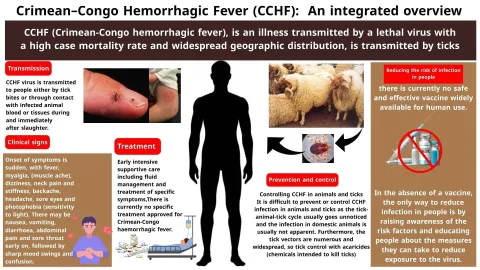Rubella vaccination is crucial for public health, as it plays a significant role in preventing congenital rubella syndrome (CRS) and reducing its impact worldwide. According to modeling studies, implementing rubella vaccinations in 19 countries could avert nearly 1 million cases of CRS by 2055, an astonishing statistic that highlights the rubella vaccine benefits. With current vaccination programs covering the majority of World Health Organization (WHO) member countries, the call for universal rubella vaccine coverage has never been more pressing to aid in rubella elimination efforts. Implementing effective CRS prevention strategies is critical, especially in low- and middle-income nations where access currently lags. By focusing on rubella vaccination, we can protect vulnerable populations and ensure healthier futures for countless children.
The significance of measles vaccination, particularly the rubella component, cannot be overstated in the quest for global health improvement. Preventive measures against rubella, often known as German measles, are essential for safeguarding maternal and child health. Vaccination initiatives are not only cost-effective but are pivotal for the strategic elimination of CRS, thereby protecting future generations from serious health complications. The expansion of these immunization efforts demonstrates a commitment to public health, especially in regions that currently lack such programs. Emphasizing the necessity of rubella immunization can ultimately lead to substantial advancements in worldwide health outcomes.
The Importance of Rubella Vaccination in Global Health
Rubella vaccination is a critical aspect of public health, especially in the context of preventing congenital rubella syndrome (CRS). This highly contagious viral infection, which often presents as a mild illness, can have severe consequences for pregnant women and their fetuses, leading to miscarriage or serious birth defects. Without adequate vaccination strategies in place, the risk of CRS cases remains alarmingly high. Global efforts to increase awareness about rubella vaccination have demonstrated that consistent and widespread immunization can significantly lower these risks, providing a safety net for future generations.
The rollout of rubella vaccines has proven to be a financially viable strategy as well, minimizing healthcare costs associated with treating CRS cases. Countries that have successfully integrated rubella-containing vaccines into their routine immunization programs have experienced declines in CRS incidence, indicating the vaccine’s success. For nations yet to implement these vaccination programs, timely intervention is imperative. Prioritizing rubella vaccination can help lay the groundwork for healthier communities and a decrease in healthcare burdens associated with childhood diseases.
Strategies for CRS Prevention and Rubella Elimination
Preventing congenital rubella syndrome (CRS) hinges on the effective distribution of rubella vaccinations worldwide. To eliminate rubella, public health strategies must focus not only on universal vaccination coverage but also on targeted educational campaigns that highlight the importance of immunization before pregnancy. Moreover, governments and health organizations, such as the WHO and UNICEF, need to collaborate closely to ensure that rubella vaccination becomes accessible in low- and middle-income countries, where the need is greatest.
Implementing robust vaccination programs, including catch-up campaigns and follow-up immunization activities, can dramatically affect the prevalence of CRS. Studies show that consistent efforts to vaccinate populations can avert nearly a million cases by 2055. By prioritizing rubella elimination strategies through widespread vaccination efforts, countries can drastically reduce the incidence of CRS and protect future generations from its severe complications. This is not just a health priority but a moral obligation to ensure safe pregnancies and healthy newborns globally.
The Economic Impact of Rubella Vaccines
Investing in rubella vaccination carries significant economic benefits for countries around the world. The cost-effectiveness of the rubella vaccine has been well-documented, particularly in high and middle-income settings where healthcare systems can allocate resources towards preventive measures. Each avoided case of CRS represents not just a personal family tragedy but also a substantial financial burden on healthcare systems that must address the long-term needs of children born with disabilities due to rubella.
However, the economic implications extend far beyond immediate healthcare costs; they influence overall productivity and long-term economic growth. By integrating rubella vaccination into national immunization programs, governments can create healthier populations that are less reliant on medical interventions. There’s a shared global responsibility to support immunization programs in under-resourced areas, highlighting the interplay between health and economic vitality.
Addressing Challenges in Rubella Vaccination
Despite the well-established benefits of rubella vaccination, various challenges hinder its implementation, particularly in low-income countries. These challenges include a lack of awareness, limited healthcare infrastructure, and sociopolitical factors that can impede vaccination programs. It is crucial for health organizations and governments to collaborate on strategies that address these barriers, fostering a culture of vaccination and ensuring that rubella vaccines are available and trusted.
Moreover, logistic and supply-chain issues can significantly delay the introduction of rubella-containing vaccines in some regions. To tackle this, global partnerships must be strengthened, enabling better resource distribution and support for vaccination efforts. By overcoming these challenges, nations can progress towards a future where rubella and its associated syndromes are eliminated effectively.
Global Recommendations for Universal Rubella Vaccination
The WHO’s recommendation for universal rubella vaccination is a pivotal step in the global health landscape. By advocating for the integration of rubella-containing vaccines into routine immunization programs, the organization aims to standardize protection against this preventable disease. With the potential to avert almost a million cases of CRS globally, adhering to these recommendations saves lives and reduces the associated healthcare costs for governments.
Furthermore, an emphasis on universal rubella vaccination aligns with broader goals aimed at improving maternal and child health. As countries ramp up their vaccination efforts, collaborations with international health organizations become essential. By working together, they can ensure that resources are efficiently utilized and that education on the importance of vaccines reaches diverse communities, ultimately leading to significant public health improvements.
The Role of Health Infrastructure in Vaccine Distribution
Robust health infrastructure is vital for the successful distribution of rubella vaccines. Without adequate facilities and trained personnel, vaccination campaigns face potential pitfalls that could undermine efforts to eliminate rubella and associated diseases. Investment in healthcare systems must prioritize the establishment of reliable channels for vaccine storage, distribution, and administration, especially in remote areas that may face logistical barriers.
Furthermore, strengthening local healthcare capacities is essential to facilitate the training of healthcare workers and the organization of community vaccination events. By prioritizing these efforts, countries can ensure an effective and inclusive rubella vaccination program that reaches all segments of the population, thereby maximizing the potential for a significant decrease in rubella and CRS cases.
Monitoring and Evaluating Vaccination Impact
To understand the effectiveness of rubella vaccination programs, countries must implement rigorous monitoring and evaluation mechanisms. Collection of data on vaccination coverage, CRS incidence rates, and population health outcomes allows public health officials to assess the success of their strategies and make necessary adjustments. This feedback is essential not only for progress tracking but also for engaging stakeholders and securing continued support for vaccination initiatives.
Moreover, research and studies focused on the long-term outcomes of vaccination programs can lead to deeper insights into vaccine efficacy and areas of improvement. By fostering a culture of continuous evaluation, countries can continuously enhance their approaches to rubella vaccination, contributing to global rubella elimination goals and protecting vulnerable populations.
Community Engagement in Vaccination Programs
Community engagement plays a crucial role in the success of rubella vaccination initiatives. Informing local communities about the benefits of vaccination and addressing common misconceptions can lead to higher immunization rates. Strategies that include community leaders and local organizations in the promotion of rubella vaccination can significantly amplify outreach efforts, fostering a supportive environment for vaccination uptake.
Additionally, involving communities in the planning and implementation of vaccination programs empowers individuals and encourages proactive participation. By listening to local concerns and needs, health officials can create tailored strategies that resonate with communities, ultimately leading to enhanced public trust and increased demand for rubella vaccination.
Future Directions for Rubella Vaccination and CRS Prevention
Looking toward the future, the objective of rubella vaccination is clear: to eliminate rubella and the incidence of CRS globally. To achieve this, a concerted effort that includes international collaboration, community education, and the strengthening of health infrastructures is necessary. Vaccination must be viewed as a continuous endeavor that adapts to emerging public health challenges and opportunities.
As more countries recognize the importance of rubella vaccination, future directions must focus on innovative strategies to enhance vaccine delivery and acceptance. Partnerships with global health entities and local governments can pave the way for successful programs that cater to the diverse needs of populations. Ultimately, a united front against rubella will be vital in safeguarding future generations from the consequences of this preventable infection.
Frequently Asked Questions
What are the benefits of rubella vaccination?
Rubella vaccination provides numerous benefits, including lifelong immunity against rubella and prevention of congenital rubella syndrome (CRS) in newborns. By incorporating rubella-containing vaccines (RCVs) into routine immunization programs, countries can significantly reduce the incidence of CRS, which could averse an estimated 1 million cases globally by 2055.
How does rubella vaccination help prevent congenital rubella syndrome (CRS)?
Rubella vaccination helps prevent congenital rubella syndrome (CRS) by immunizing women of childbearing age against the rubella virus before pregnancy. Infection during pregnancy can lead to serious birth defects or miscarriage, but with widespread vaccination, particularly through robust vaccination programs, the risk of CRS can be greatly minimized.
What are current vaccination programs for rubella worldwide?
As of 2023, 175 out of 194 WHO member countries have included rubella-containing vaccines (RCVs) in their routine vaccination programs. The WHO plans to recommend universal RCV for 19 remaining countries in 2024, targeting these areas to address an estimated 28,000 CRS cases reported in 2023, which represent 78% of global CRS cases.
What strategies are in place for rubella elimination?
Rubella elimination strategies include the introduction of rubella vaccination in low- and middle-income countries, especially those currently without RCVs. Implementing catch-up and follow-up immunization activities could prevent over 986,000 cases of congenital rubella syndrome (CRS) by enhancing vaccine coverage even if population rates for measles vaccines fall below 80%.
Why are rubella vaccination programs important for global health?
Rubella vaccination programs are crucial for global health as they help eliminate rubella and prevent congenital rubella syndrome (CRS), ensuring healthier pregnancies and reducing healthcare costs associated with CRS treatment. With concerted efforts to roll out RCVs, the global burden of rubella can be significantly reduced, ultimately improving overall public health.
| Key Point | Details |
|---|---|
| Potential Impact | Rolling out rubella-containing vaccines (RCVs) could prevent approximately 1 million cases of congenital rubella syndrome (CRS) by 2055. |
| Current Vaccination Status | As of 2023, 175 out of 194 WHO-member countries have included an RCV in their routine immunization programs. |
| Recommended Action | The WHO has recommended universal introduction of RCV in the remaining 19 countries in 2024. |
| Predicted CRS Cases | Without RCVs, an estimated 1.03 million CRS cases may occur in the 19 countries from 2025 to 2055. |
| Cost-Effectiveness | Rubella vaccination is shown to be cost-effective in high- and middle-income countries, with no studies confirming its cost-effectiveness in low-income regions. |
| Call for Support | Global partners are encouraged to assist in the procurement of vaccines and necessary infrastructure. |
Summary
Rubella vaccination is crucial as it can significantly reduce congenital rubella syndrome (CRS) cases worldwide. The introduction of rubella-containing vaccines (RCVs) in the 19 countries that currently lack them could lead to a dramatic decrease in CRS cases, preventing approximately 1 million infections by 2055. With a single dose providing lifelong protection, the urgency for global partners to support vaccine procurement and distribution has never been greater. By following the recommended actions from WHO, we can make strides toward eliminating rubella and CRS globally.
The content provided on this blog (e.g., symptom descriptions, health tips, or general advice) is for informational purposes only and is not a substitute for professional medical advice, diagnosis, or treatment. Always seek the guidance of your physician or other qualified healthcare provider with any questions you may have regarding a medical condition. Never disregard professional medical advice or delay seeking it because of something you have read on this website. If you believe you may have a medical emergency, call your doctor or emergency services immediately. Reliance on any information provided by this blog is solely at your own risk.








